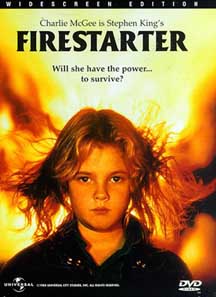Only You Can Prevent Forest Fires After They've Burned Everything in Sight
Recently eaten: rainbow trout
Recent annoyance:
While I applaud Wired mag for coming out with this great how-to for the rest of us that might live near a burning bush or two, this seems a little insensitive to the thousands of people who have lost homes in Southern California. It's like going to a prison yard to teach inmates how to stay out of trouble. Or, it's like too many knives when all you need is a spoon. Or maybe it's not like that at all.
Protect your house and family in case of a wildfire
This little How To comes to us from several government websites including the province of Nova Scotia and the FEMA site.
Though the adverse natural conditions, strong winds and high heat, in Southern California have caused wildfires to circumvent many of these safety measures and cause immense property damage, having these precautions in place can often buy your family time to reach a safe distance away from danger.
Protecting Your Home
- Create 10 meters (about 32 feet) of defensible space around your home.
- Defensible space is an area around a structure where fuels and vegetation are treated to slow the spread of wildfire. By observing the following precautions, you can minimize the risk of losing your home to wildfire:
- Store gasoline and other flammable liquids in approved safety containers and away from occupied buildings
- Liquified Petroleum Gas (LPG) tanks should be far enough away from buildings for valves to be shut off in case of fire
- Clean roof surfaces and gutters regularly
- Maintain a non-flammable screen over the flue opening of every chimney or stovepipe
- The distance between your house and any nearby tree should always be greater than the height of the mature tree or at least 10 feet.
- Remove portions of any tree branches extending over your roof
- Have fire tools handy such as: ladder, shovel, rake and water bucket
- Have an Evacuation Plan in place with your family well ahead of wildfire season
- Civic address should be clearly posted
- All roads and driveways should be at least five metres in width
- Remove all leaves and flammable vegetation from around structures -
- Every home should have a minimum of two entrance and exit routes
- Garden hose should be connected to outlet
- Dispose of fireplace ashes or charcoal briquettes in a fire safe container
- Combustibles such as firewood, picnic tables, boats, etc. should be moved away from the house
- Wider fuel breaks are needed around buildings on steep slopes. The fuel break area may contain single shade trees and ornamental shrubs that do not allow fire to spread rapidly
- Trim trees and shrubs of diseased or dead branches, and make sure that foundation plantings are of the fire resistant variety
- If you see a wildfire, call 9-1-1. Don't assume that someone else has already called. Describe the location of the fire, speak slowly and clearly, and answer any questions asked by the dispatcher.
- Evacuate. Evacuate your pets and all family members who are not essential to preparing the home. Anyone with medical or physical limitations and the young and the elderly should be evacuated immediately.
- Wear Protective Clothing. Opt for natural fibers underneath -- synthetics can melt and adhere to skin.
- Remove Combustibles. Clear items that will burn from around the house, including wood piles, lawn furniture, barbecue grills, tarp coverings, etc. Move them outside of your defensible space.
- Close/Protect Openings. Close outside attic, eaves and basement vents, windows, doors, pet doors, etc. Remove flammable drapes and curtains. Close all shutters, blinds or heavy non-combustible window coverings to reduce radiant heat.
- Close Inside Doors/Open Damper. Close alt doors inside the house to prevent draft. Open the damper on your fireplace, but close the fireplace screen.
- Shut Off Gas. Shut off any natural gas, propane or fuel oil supplies at the source.
- Water. Connect garden hoses. Fill any pools, hot tubs, garbage cans, tubs or other large containers with water.
- Pumps. If you have gas-powered pumps for water, make sure they are fueled and ready.
- Ladder. Place a ladder against the house in clear view.
- Car. Back your car into the driveway and roll up the windows.
- Garage Doors. Disconnect any automatic garage door openers so that doors can still be opened by hand if the power goes out. Close all garage doors.
- Valuables. Place valuable papers, mementos and anything "you can't live without" inside the car in the garage, ready for quick departure. Any pets still with you should also be put in the car.
- Lights. Turn on outside lights and leave a light on in every room to make the house more visible in heavy smoke.
- Don't Lock Up. Leave doors and windows closed but unlocked. It may be necessary for firefighters to gain quick entry into your home to fight fire. The entire area will be isolated and patrolled by sheriff's deputies or police.


No comments:
Post a Comment